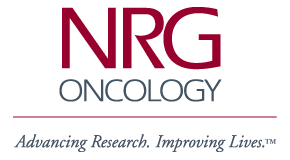

NSABP Members' Area
Password Protected - Access
Limited to NSABP Participating
Institutions Only
NSABP Foundation, Inc.
General NSABP Information
Financial Conflicts of
Interest Policy
Contact the NSABP
Employment

Clinical Trials Information
Clinical Trials Overview
Protocol Chart
Never Say Lost
Treatment Trials Information
Protocol B-51
Protocol B-52
Protocol B-53/S1207
Protocol B-55/BIG 6-13
Prevention Trials Information
Protocol P-1 - BCPT
Protocol P-2 - STAR
To report problems, ask
questions or make comments,
please send e-mail to:
Webmaster@nsabp.pitt.edu
Surgical Adjuvant Therapy for Colorectal Cancer: Current Approaches and Future Directions.
Monga DK, O’Connell MJ.
Ann Surg Oncol. 2006 Aug;13(8):1021-34. Epub 2006 Jul 29.
Abstract
Colon cancer is the fourth most common cancer worldwide. The role of systemic adjuvant chemotherapy in colorectal cancer patients with lymph node involvement has been established in a large number of clinical trials. However, its role in stage II colorectal cancer is less well established. 5-Fluorouracil has been the mainstay of therapy for the last four decades. With the development of novel chemotherapy and biological agents, we have entered into a new era for the treatment of colorectal cancer. The combination of adjuvant 5-fluorouracil, leucovorin, and oxaliplatin has been shown to significantly improve disease-free survival and is now considered the standard of care for completely resected colon cancer in healthy patients. For rectal cancer patients with locally advanced tumors, neoadjuvant chemoradiation followed by adjuvant chemotherapy after surgery is the mainstay of treatment. The availability of oral chemotherapy agents has helped with the ease of administration and avoidance of indwelling catheters. A number of national clinical trials are under way to determine the role of targeted agents in combination with chemotherapy. The goal is to develop a regimen that would improve survival without excessive toxicity while maintaining quality of life. Patients should be encouraged to participate in clinical trials whenever feasible. Despite the advances, many patients will develop recurrent disease. It is of utmost importance to develop molecular markers that could predict which patients are at high risk for disease recurrence. Clinical trials are under way to address this issue. Thus, it will be advantageous to be able to tailor therapy individually, according to the risk of recurrence.
PMID: 16897272